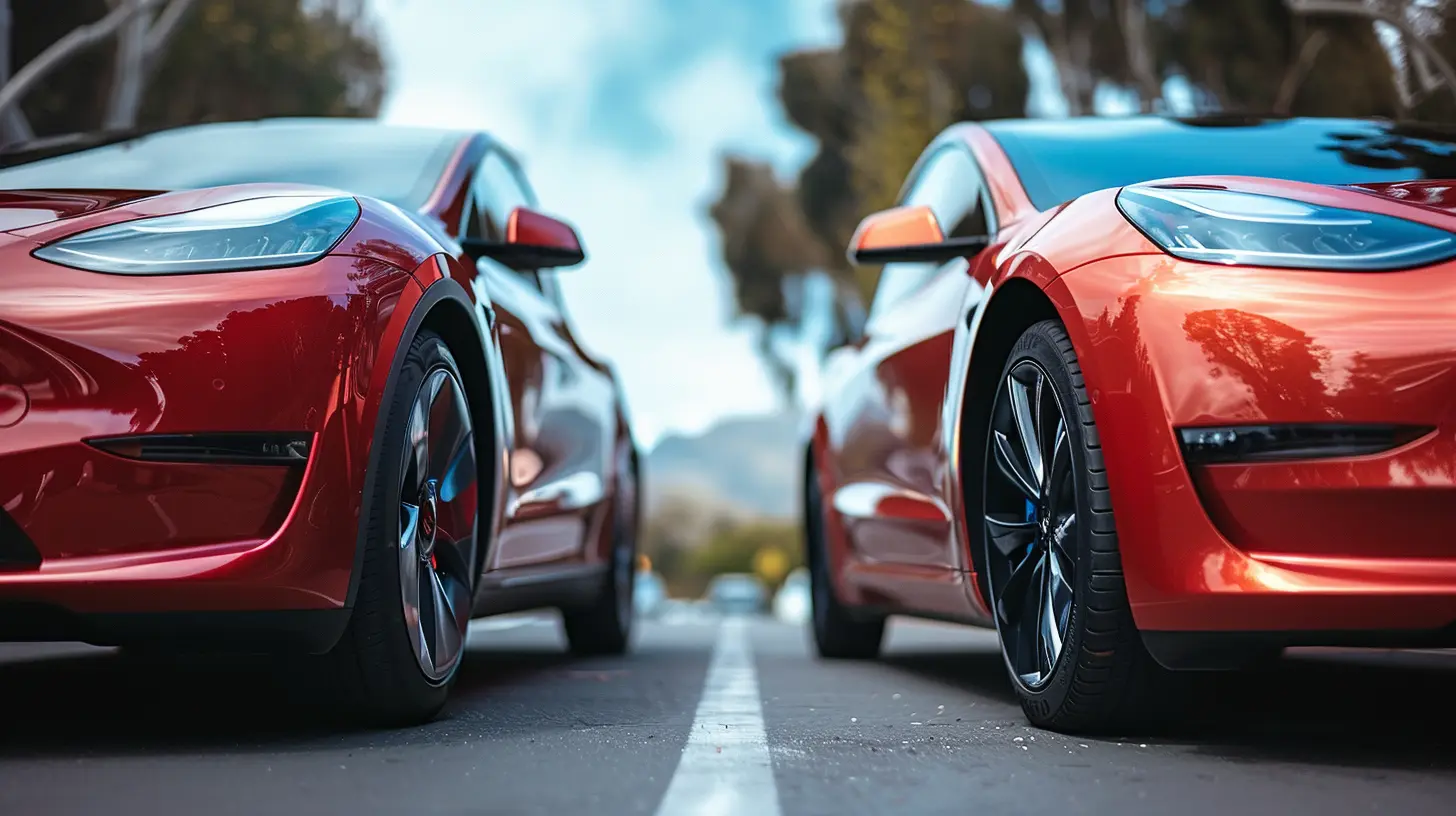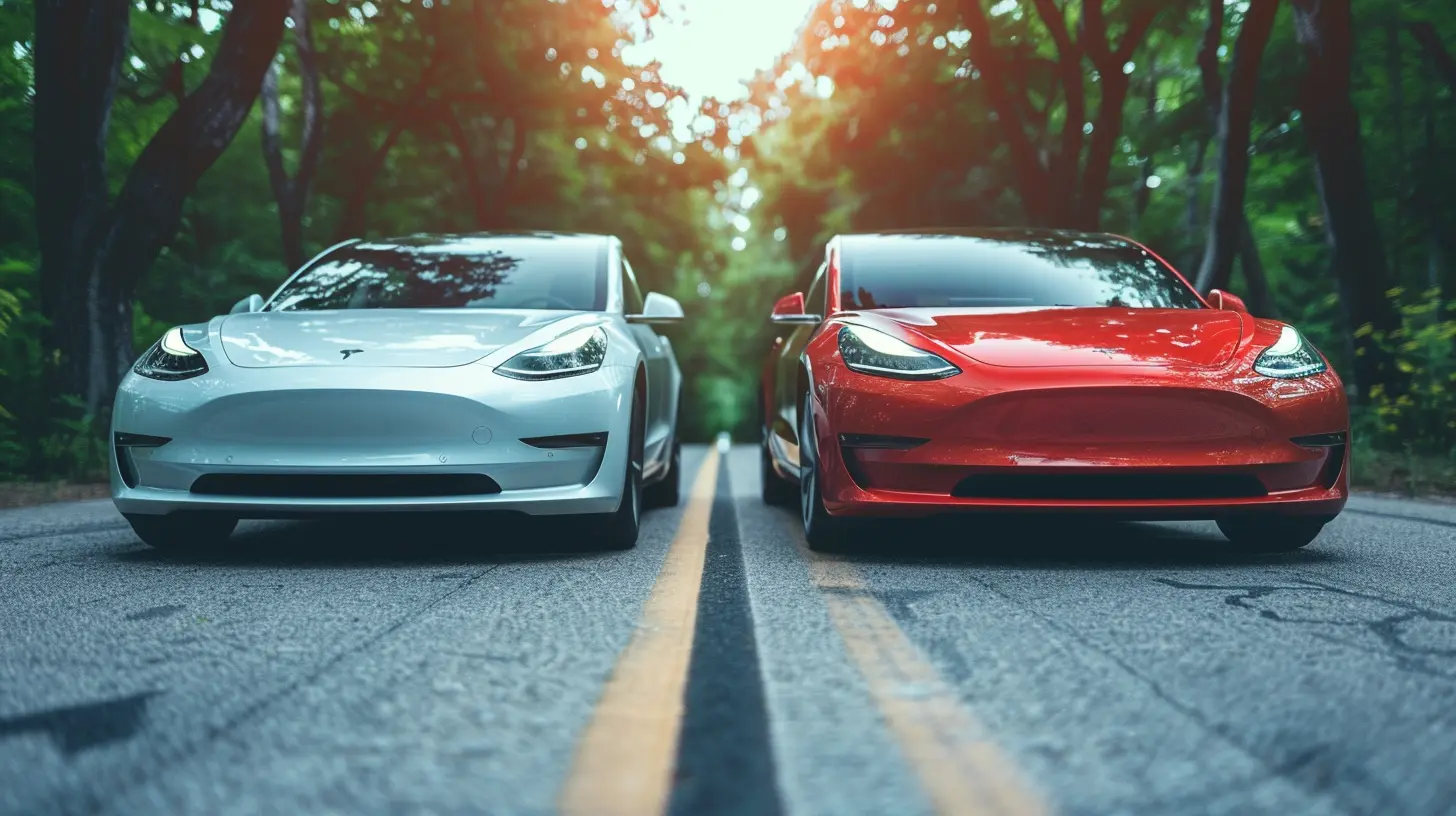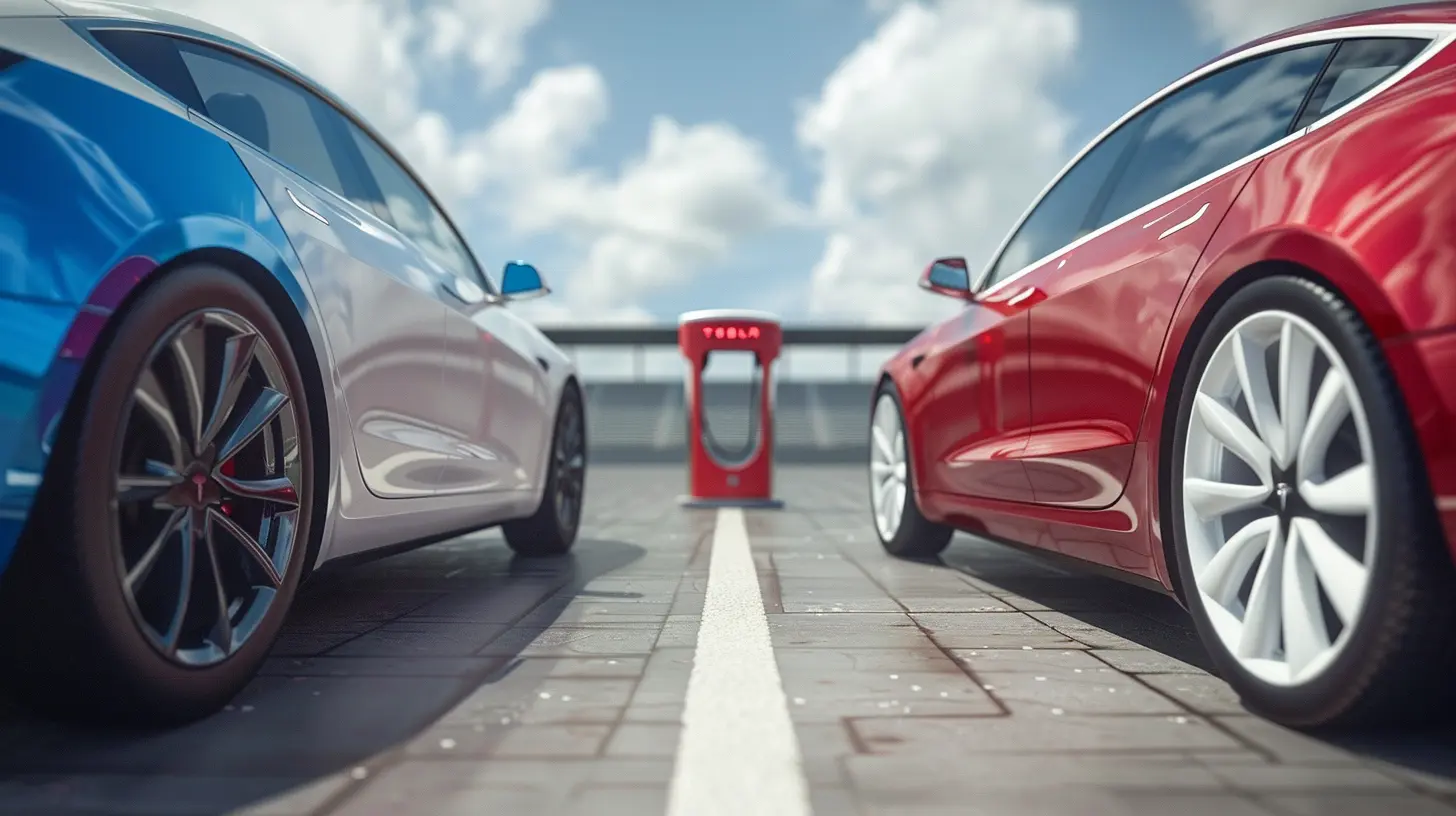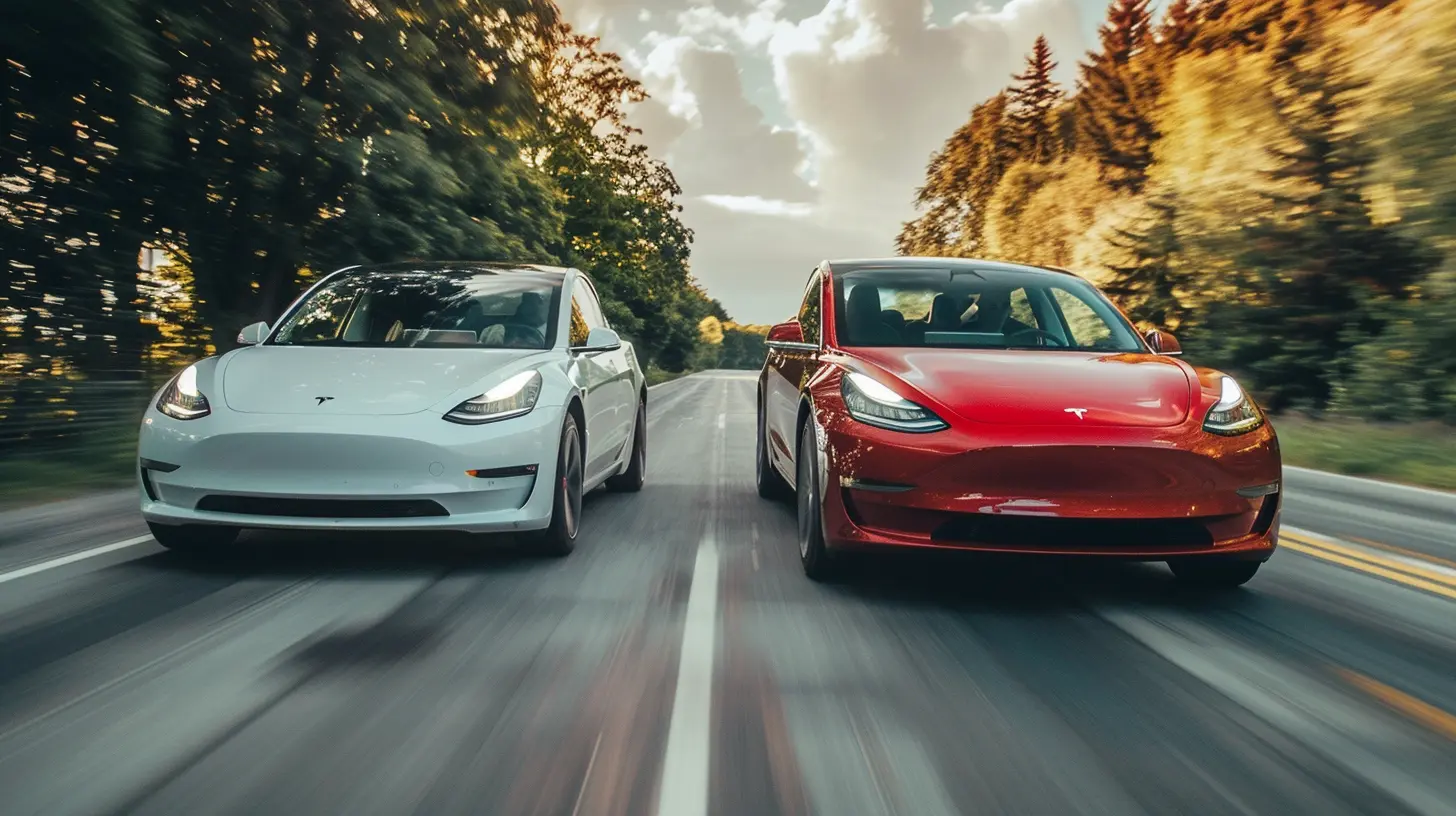Comparing Electric Cars vs. Traditional Gasoline Cars
29 March 2025
Electric cars (EVs) have been making waves in recent years. You probably see them more often on the road, hear about them in the news, and, let’s be honest, they’ve sparked more than a few debates at the dinner table. But what’s the real deal when you pit them against traditional gasoline-powered cars? Which one comes out on top?
If you’ve been scratching your head trying to figure out whether you should stick with your trusty gas guzzler or jump into the electric revolution, you’re not alone. In this article, we’re going to dive into the key differences between electric cars and traditional gasoline cars. We’ll look at everything from cost and performance to maintenance and environmental impact. By the end of this, you’ll have a clearer understanding of which type of car might suit your lifestyle and needs.

1. The Basics: What Are We Comparing?
Before we get too deep, let’s clarify what we’re comparing.- Electric cars (EVs) run solely on electricity. They have an electric motor, and you recharge them by plugging them into a power source. No gas, no oil changes, and, in most cases, very little noise.
- Traditional gasoline cars are powered by internal combustion engines (ICE). They rely on gasoline or diesel to operate and have been the standard for over a century.
Both types of vehicles have their pros and cons, so let's break them down.
2. Cost: Upfront vs. Long-Term
Upfront Costs
When it comes to upfront costs, electric cars tend to have a higher price tag. Sure, there are budget-friendly EV options out there, but generally speaking, EVs are more expensive to purchase compared to their gasoline counterparts.Why? Well, the technology behind electric cars is still relatively new, plus the cost of their batteries is a significant factor. However, some countries or regions offer government incentives, rebates, or tax breaks to make electric cars more affordable. It’s worth checking if those apply to your area before ruling out an EV based on the sticker price alone.
Running Costs
Here’s where things get interesting. While electric cars might be more expensive upfront, they usually cost less to run. Charging an electric vehicle is typically cheaper than filling up a gasoline tank. Depending on where you live and how much you drive, you could save hundreds—if not thousands—of dollars a year just on fuel.And let’s not forget about maintenance. Electric cars have fewer moving parts compared to gasoline cars—no engine oil to change, no spark plugs, no exhaust system. This means fewer things can go wrong, and fewer trips to the mechanic, which is music to anyone’s ears.
Long-Term Savings
Over time, the lower running and maintenance costs of EVs tend to balance out their higher initial price. For some drivers, the break-even point could come in a few years; for others, it might take longer. But in the long run, electric cars often save you more money—especially if gas prices spike. Ouch, we’ve all felt that pain, haven’t we?
3. Performance: Speed, Handling, and Range
Acceleration and Speed
You might be surprised to hear this, but electric cars are fast. Like, really fast. Thanks to something called instant torque, EVs can accelerate much quicker than most gasoline cars. When you press the pedal, the power goes straight to the wheels, and bam—you’re off. In fact, many electric cars can go from 0 to 60 mph in under 3 seconds. That’s supercar territory.With gasoline cars, it’s a bit different. The engine needs to build up speed before delivering full power, which means they typically don’t accelerate as swiftly as electric cars.
Handling
Handling is another area where EVs excel. Because their heavy batteries are usually positioned low in the vehicle, electric cars tend to have a lower center of gravity, which makes them feel more stable when cornering. This gives them an edge in terms of handling and maneuverability, especially in tight spaces or on twisty roads.That said, traditional gasoline cars can still offer a thrilling driving experience, especially sports cars with powerful engines. But if you’re after smooth, effortless acceleration and precision handling, EVs are hard to beat.
Range Anxiety: The EV Achilles Heel?
Now, here’s where gasoline cars still have a major advantage: range. Gasoline cars can typically drive much farther on a full tank than most electric cars can on a single charge. Plus, refueling a gas car takes just a few minutes, while charging an electric car—depending on the charging station—can take a lot longer."Range anxiety" is a real concern for some potential EV buyers. The fear of running out of juice in the middle of nowhere isn’t unfounded, but it’s becoming less of an issue as battery technology improves and charging stations become more widespread. Still, if you regularly drive long distances, a gasoline car might be more convenient for now.
4. Environmental Impact: The Green Debate
Electric Cars: Cleaner, But Not Perfect
It’s no secret that electric cars are often hailed as the greener choice. Since they don’t burn gasoline, EVs produce zero tailpipe emissions, which means they don’t contribute to air pollution in the same way traditional cars do. That’s a big win for the environment, especially in cities where smog and poor air quality are major issues.But, here’s the kicker: electric cars aren’t entirely "clean." Producing the batteries that power EVs requires mining rare materials like lithium, cobalt, and nickel, which can have significant environmental and ethical implications. Plus, the electricity that charges EVs has to come from somewhere. If it’s coming from coal-fired power plants, for example, your electric car might not be as eco-friendly as you think.
Gasoline Cars: The Status Quo
On the flip side, gasoline cars contribute to both air pollution and climate change through emissions of carbon dioxide (CO2) and other harmful pollutants. Over time, these emissions add up, leading to smog, respiratory issues, and the acceleration of global warming.While gasoline cars are getting more efficient with advancements in fuel technology and engine design, they still can’t compete with the zero-emission driving that electric cars offer.
5. Convenience and Infrastructure: Charging vs. Refueling
Electric Cars: Charging Access
One of the biggest practical differences between electric and gasoline cars is how and where you refuel—or in the case of EVs, recharge. Charging an electric vehicle can take anywhere from 30 minutes (using a fast charger) to several hours (using a standard home outlet). If you’ve got access to charging infrastructure, this might not be a big deal. You can plug in your car overnight at home or while you're at work, and it’ll be ready to go when you need it.But if you don’t have easy access to a charger, things get tricky. Public charging stations aren’t as common as gas stations (yet), and depending on where you live, finding one might require some planning and patience.
Gasoline Cars: Tried and True
Gasoline cars, on the other hand, have the advantage of a well-established infrastructure. You can find a gas station pretty much anywhere, and filling up takes only a few minutes. For people who prioritize convenience and spontaneity, the ease of refueling a gasoline car is a big plus.6. Sound and Driving Experience: Silence vs. Roar
Electric Cars: Quiet and Smooth
If you’ve ever driven or ridden in an electric car, you’ve probably noticed how eerily quiet it is. Since there’s no engine noise, all you hear is a gentle hum—or nothing at all. Some people love the peaceful, almost futuristic vibe of driving an EV, while others miss the roar of a traditional engine.Gasoline Cars: The Thrill of the Engine
Speaking of that roar, there’s something undeniably satisfying about the sound of a gasoline engine, especially if you’re a car enthusiast. The growl of a powerful engine as you accelerate down the highway can make driving feel more visceral and exciting. For some, that’s a big part of the joy of driving—a joy that electric cars, with their near-silent operation, just can’t replicate.7. The Future: Where Are We Headed?
The automotive industry is changing rapidly. Governments across the world are setting ambitious goals to phase out gasoline cars in favor of electric vehicles, and automakers are investing heavily in EV technology. In the next decade or so, we’ll likely see a huge shift towards electric vehicles as the technology becomes more affordable, and battery range improves.However, gasoline cars aren’t disappearing overnight. They’ve been the go-to for over a century, and there’s still a massive infrastructure built around them. Plus, for many people—especially those in rural or remote areas—gasoline cars will remain a practical choice for years to come.
Conclusion: Which Should You Choose?
So, what’s the verdict? Should you go electric or stick with gasoline?Well, it really depends on your situation. If you’re looking for a car with lower long-term costs, better performance, and a cleaner environmental footprint, an electric car might be the way to go—especially if you have easy access to charging stations. But if you prioritize range, convenience, and the classic driving experience, a traditional gasoline car could still be the better option for now.
Whichever you choose, it’s clear that both electric and gasoline cars have their place. And with the rapid pace of technological advancements, the gap between them is only going to shrink.
all images in this post were generated using AI tools
Category:
Electric VehiclesAuthor:

Vincent Hubbard
Discussion
rate this article
8 comments
Zeno McMahon
This article thoughtfully highlights the key differences between electric and gasoline cars. While electric vehicles offer environmental benefits and lower operating costs, traditional cars still appeal due to their established infrastructure and range. As technology evolves, the decision will likely hinge on individual preferences and regional resources. A thought-provoking read!
May 1, 2025 at 4:46 AM

Vincent Hubbard
Thank you for your insightful comment! I'm glad you found the article thought-provoking. As technology advances, the conversation around electric and gasoline cars will continue to evolve.
Rocket Hamilton
Electric cars offer lower emissions and reduced operating costs, while traditional gasoline cars provide established refueling infrastructure and often lower upfront purchase prices. Both have merits.
April 22, 2025 at 10:54 AM

Vincent Hubbard
Thank you for your balanced perspective! Both electric and gasoline cars indeed have their unique advantages, making the choice dependent on individual needs and circumstances.
Valen Sheppard
Great article! It would be helpful to include more data on long-term costs and environmental impact for a more comprehensive comparison.
April 11, 2025 at 4:58 AM

Vincent Hubbard
Thank you for your feedback! I appreciate your suggestion and will consider including more data on long-term costs and environmental impacts in future updates.
Brittany McPhee
Great insights! Embracing electric cars not only benefits our planet but also paves the way for innovative transportation solutions.
April 10, 2025 at 2:21 AM

Vincent Hubbard
Thank you! I'm glad you found the insights valuable. Embracing electric vehicles truly does offer both environmental benefits and opportunities for innovation in transportation.
Malia Martin
Embracing electric cars is a powerful step toward a sustainable future! They represent innovation, cleaner air, and a commitment to protecting our planet while enjoying the thrill of cutting-edge technology. Drive change!
April 7, 2025 at 10:44 AM

Vincent Hubbard
Thank you for your insightful comment! Embracing electric cars indeed paves the way for a cleaner, more sustainable future.
Wendy Rogers
Great article! It's crucial to weigh the environmental benefits of electric cars against the established infrastructure and convenience of gasoline vehicles. Both options have their merits depending on individual needs.
April 4, 2025 at 11:55 AM

Vincent Hubbard
Thank you for your insightful comment! Balancing environmental benefits with practicality is indeed key in the electric vs. gasoline car debate.
Hayden McClary
Oh sure, let’s compare silent, eco-friendly rides to gas-guzzlers that spit out fumes—because who wouldn’t want to breathe extra drama?
April 3, 2025 at 8:28 PM

Vincent Hubbard
I appreciate your perspective! The comparison highlights crucial differences in sustainability and environmental impact.
Fenn Riggs
Thank you for this insightful comparison of electric and traditional gasoline cars. It’s essential to understand the benefits and drawbacks of each option as we navigate the future of transportation. Your analysis provides valuable information for consumers considering their next vehicle purchase. Looking forward to more articles like this!
March 31, 2025 at 3:50 AM

Vincent Hubbard
Thank you for your kind words! I'm glad you found the comparison useful. Stay tuned for more articles on this important topic!
MORE POSTS

What to Look for in the Next Generation of Smartwatches

How Cloud-Based ERP is Transforming Business Operations

How to Build Chatbots with Python and Natural Language Processing

Understanding Two-Factor Authentication and Why You Need It

Streaming Devices and VPNs: Unlocking Global Content

The Latest in Wireless Audio Streaming Devices